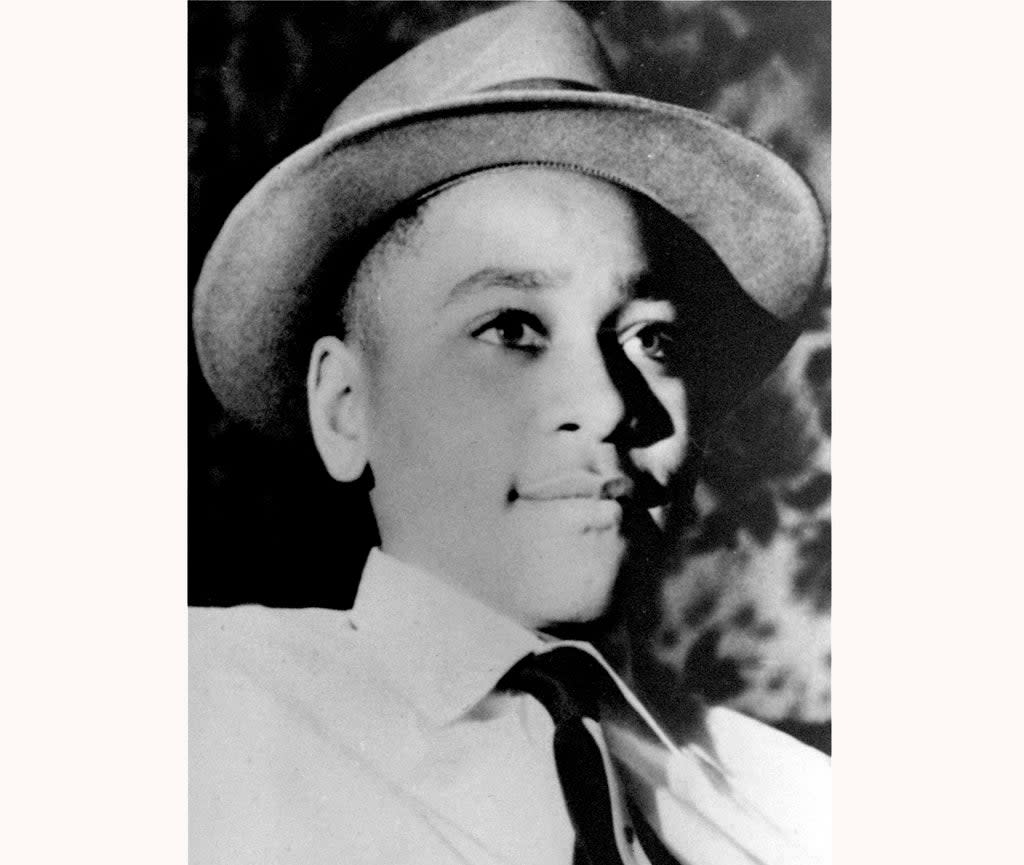‘For 66 years we suffered’: Emmett Till’s family disappointed as DOJ closes lynching investigation without new charges

The family of Emmett Till have expressed their disappointment after the Department of Justice closed its re-investigation of the 1955 lynching of Till without filing any new charges.
“I’m not surprised but my heart is broken,” Thelma Wright Edwards, Till’s cousin, told reporters on Monday. “I had hope that we could get an apology, but that didn’t happen. Nothing was settled. The case is closed and we have to go on from here.”
Till, a 14-year-old Black boy, was viciously tortured and shot for allegedly whistling and making sexual advances towards a white woman named Carolyn Bryant in Money, Mississippi.
His body was later discovered in the Tallahatchie River, and thousands attended the funeral in his hometown of Chicago. His mother insisted the ceremony be open-casket, and images of Till’s mutilated corpse shocked the nation and underscored the kind of racist violence African-Americans faced in the Jim Crow South.
“Today is a day we will never forget,” said the Reverand Wheeler Parker, another cousin of Till’s. “For 66 years we have suffered pain ... I suffered tremendously.”
Christopher Benson, a journalism professor who is co-authoring a book on Till’s case with Mr Parker, lamented the decision as well.
“This family has waited 66 years to learn who would answer for Emmett. And now we know: nobody,” Mr Benson said. “And that’s a tragedy on top of a tragedy.”
Authorities re-opened the case three years ago, after a historian’s new book seemed to contradict key parts of the original record of what happened in the brutal killing.
The 2017 book The Blood of Emmett Till by historian Timothy Tyson featured the first known interview with Carolyn Bryant, where she seemed to recant her previous testimony in court that had claimed Till grabbed her waist and used inappropriate language.
“That part’s not true,” Bryant, now in her late 80s, is quoted as saying in the book. “Nothing that boy did could ever justify what happened to him.”
Carolyn Bryant, now known as Carolyn Donham, denied to the FBI that she had ever recanted her original version of events, and agents were unable to find any record in Mr Tyson’s interview transcripts or audio records containing such comments.
Because of the ambiguity around the woman’s statements, as well as the lengthy period of time since the underlying crimes were committed, the DOJ concluded it was unable to press charges against any living person in the investigation.
“It would thus be impossible for prosecutors to prove beyond a reasonable doubt that the woman intentionally recanted all or part of her state court testimony, and that she then lied to the FBI when she denied having done so,” the Department of Justice wrote in a statement on Monday.
The historian, a senior research scholar at Duke University, stood by his version of events, though was skeptical the claims in his book could lead to new charges.
“Because the only thing that she disclosed to me is perjury, that she testified falsely in court,” he told The Washington Post. “The statute of limitations on that ran out in 1958.”
The scholar also received a copy of Donham’s unpublished memoir More Than a Wolf Whistle: The Memoir of Carolyn Bryant Donham, which he gave to the University of North Carolina and asked not be released until 2036 or Donham’s death.

 Yahoo News
Yahoo News 
